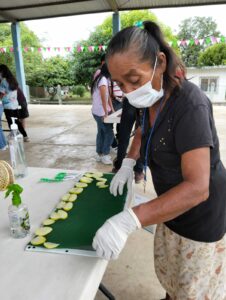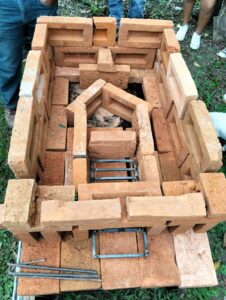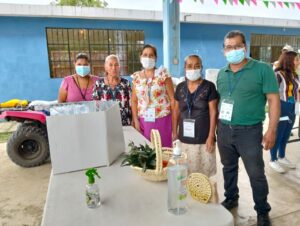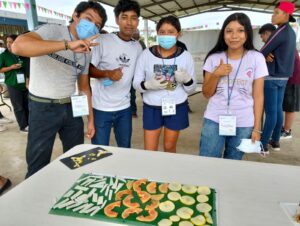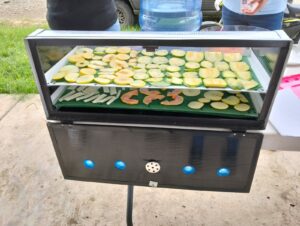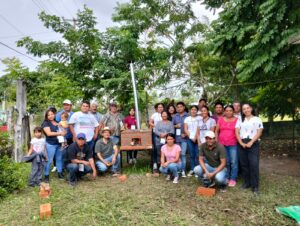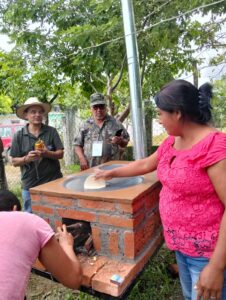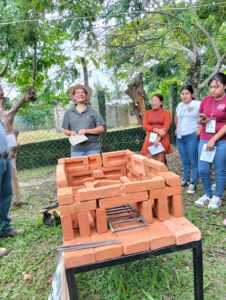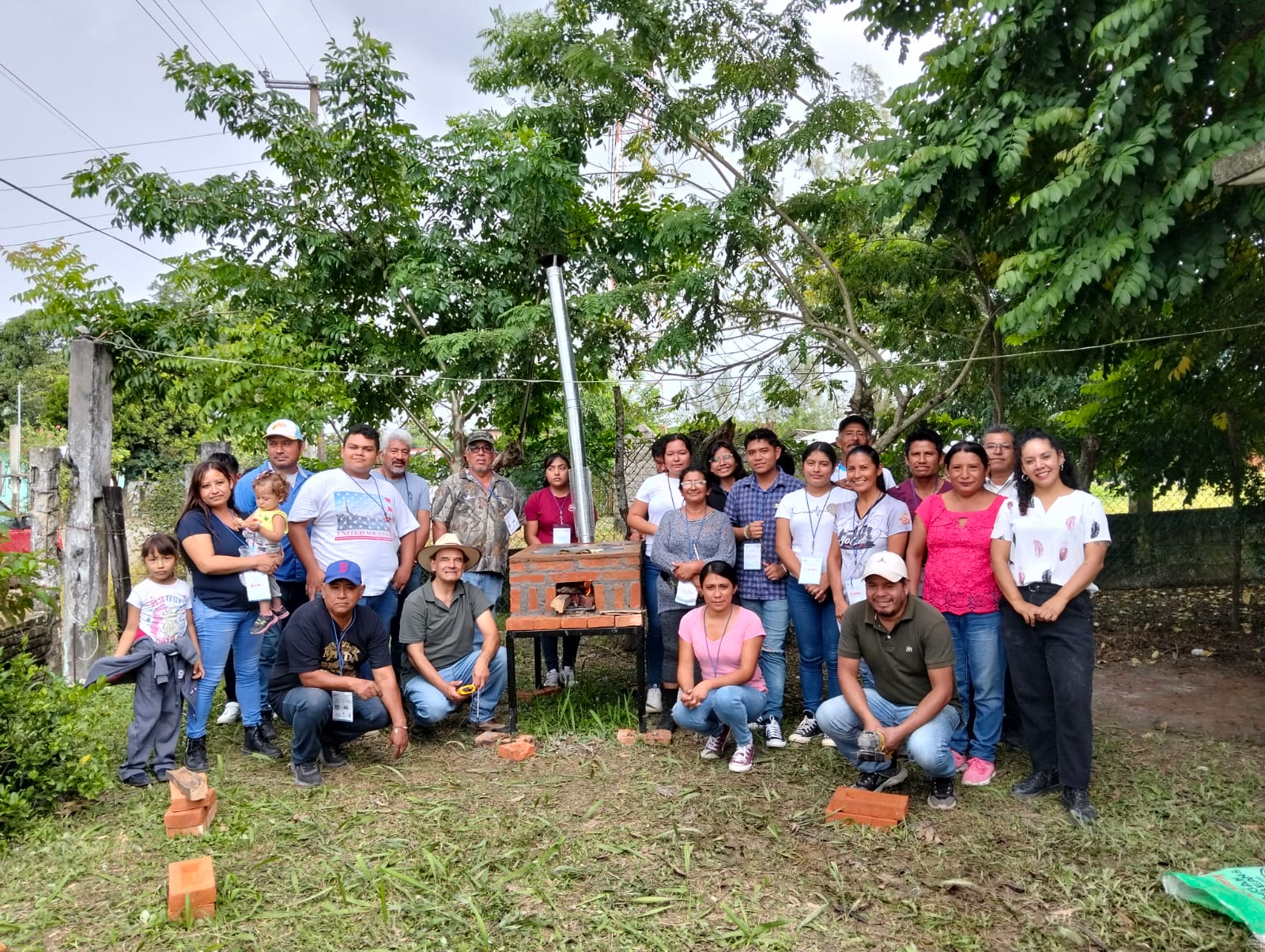On October 26 and 27, the second module of the “Energy School” was held, organised by the Tuxpan III and IV CCP. 52 people participated in this module, including municipal representatives from Chacoaco, Emiliano Zapata, Lindavista and Práxedis Guerrero, as well as allies and volunteers from the communities of the Ruta de los Kilómetros Alliance.
The event was attended by Ramadán Salazar González, responsible for Corporate Social Responsibility at LATAM GPG, and Fernando García, Assistant Maintenance Manager, representing the power station.
The module was led by Doctor of Science Víctor Berrueta Soriano, from the Interdisciplinary Group of Appropriate Rural Technology (GIRA), and technician Félix Patricio Chávez, from the UANDANI Ecotechnology Centre in Patzcuaro, Michoacán. Together they discussed topics such as energy, solar dehydrators and eco-friendly stoves.
First session
During the first session, Victor Berrueta explained the potential of solar dehydrators and how they are powered by solar energy. This allowed the participants to visualise a new option for the use of their organic waste, since it was mentioned that a significant percentage of organic food goes to waste in their homes.
This technique is an effective way to maximize the use of these resources and also open up entrepreneurial opportunities.
The participants were surprised to learn about the different foods that can be dehydrated such as pineapple, apple, banana, tomato and yams among others.
Second session
In the second session, the operation of the eco-friendly stoves was presented, highlighting the benefits of the Patsari stove, which was designed based on the LORENA stove. The Patsari stove can save up to 50% of firewood compared to traditional stoves.
During the session, both the traditional Patsari stove and the portable stove were discussed. Both devices have economic and health benefits for women who cook for a living. The main difference between the two is that the portable Patsari stove has a lifespan of five years, while the traditional stove has a longer lifespan and can be built with local materials.
Eco-friendly stoves are a viable alternative that can be adapted to the conditions and spaces available at the communities, making them easier to build and use. This eco-technology not only promotes the conservation of resources such as firewood, but also improves the health and well-being of those who use them. They are changing not only the way we cook, but also the lives of communities, promoting health, resource conservation and a sustainable future.
“To properly dehydrate food, the temperature must be maintained between 40°C and 70°C, and the air must have a low moisture content”, explained Víctor Berrueta, Doctor of Science
“At home we have clay ovens, but it is good to learn about other designs. I liked the Patsari stove, its design and the savings on firewood” said Marcela de la Cruz, from the Lindavista community
“In remote communities, the use of clay ovens is widespread because gas stoves are not viable”, revealed Predesvinda García Vázquez, from the Lindavista community
The School of Energy has been fundamental in making these solutions known, empowering participants with practical knowledge that can transform their homes and communities. By promoting the use of eco-friendly stoves, we contribute to a more sustainable and healthy future, where respect for the environment and optimisation of resources become a reality that is available to all.
